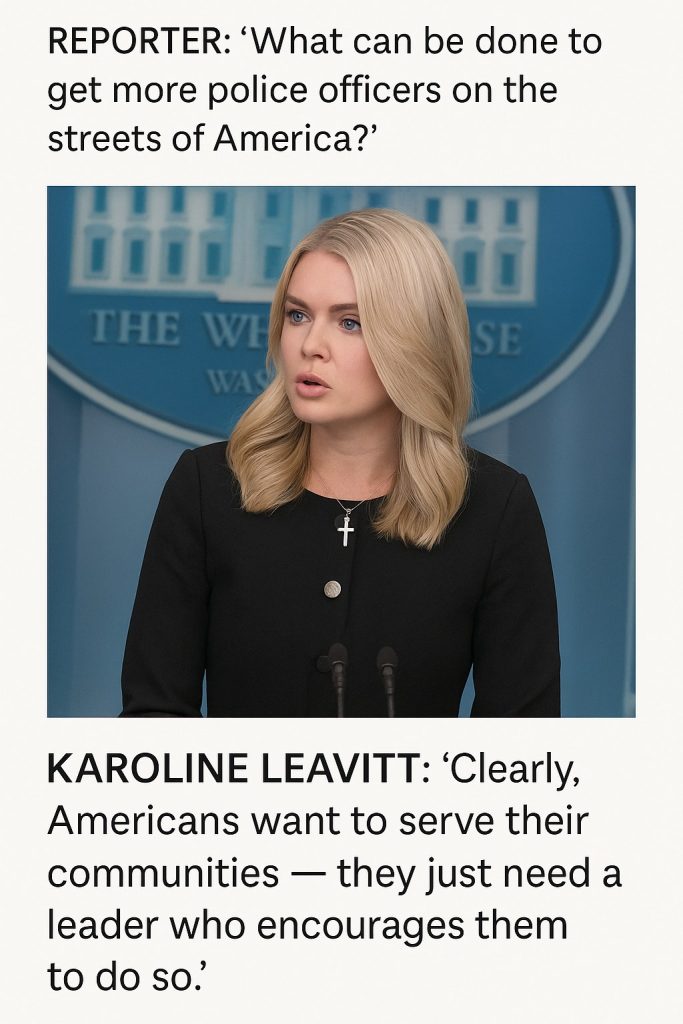As communities across the United States grapple with concerns over public safety and police presence, recent commentary from political figure Karoline Leavitt sheds light on a growing discussion: how to increase the number of police officers patrolling American streets.
In a recent exchange with reporters, when asked about solutions to boost police recruitment, Leavitt emphasized the role of effective leadership in motivating citizens to pursue a career in law enforcement. “Clearly, Americans want to serve their communities — they just need a leader who encourages them to do so,” she stated.
This remark comes at a time when many police departments around the country face significant challenges in maintaining adequate staffing levels. Factors such as job stress, public scrutiny, and competing career opportunities have contributed to a dip in recruitment and retention within many law enforcement agencies.
Leavitt’s viewpoint underscores a commonly discussed narrative in the ongoing debate over police reform and community safety — that beyond policy adjustments, leadership plays a critical role in inspiring public service careers. By fostering environments where potential officers feel valued, supported, and empowered, communities may be able to reverse the downward trend in law enforcement staffing.
Experts and officials have echoed similar sentiments, noting that recruitment strategies are multifaceted. Alongside leadership, incentives like competitive pay, benefits, mental health support, and community engagement programs have been highlighted as crucial in attracting new candidates.
Leavitt’s comments also align with recent efforts at various government levels to encourage greater community involvement in policing through outreach and educational programs. Many municipalities are exploring partnerships with local organizations and schools to introduce young people to careers in public safety early on.
Additionally, the public’s perception of police officers plays a significant role in recruitment. Positive narratives and visible community support can enhance the appeal of law enforcement as a career, while negative publicity may have the opposite effect.
Leavitt’s call for leadership-driven encouragement revives a critical question for policymakers and community leaders alike: how can America’s leaders create an atmosphere that motivates dedicated and diverse individuals to step forward and protect their neighborhoods?
As debates continue over police funding, training, and accountability reforms, the recruitment challenge remains a focal point. Increasing the number of officers on the streets is often seen as a key measure to improve safety and public trust, but it requires a comprehensive approach that includes strong, encouraging leadership, according to Leavitt.
Her perspective serves as a reminder that at its core, law enforcement is a profession defined by service. Cultivating leadership that inspires this service may be the missing link in restoring police presence and confidence within communities across the nation.



